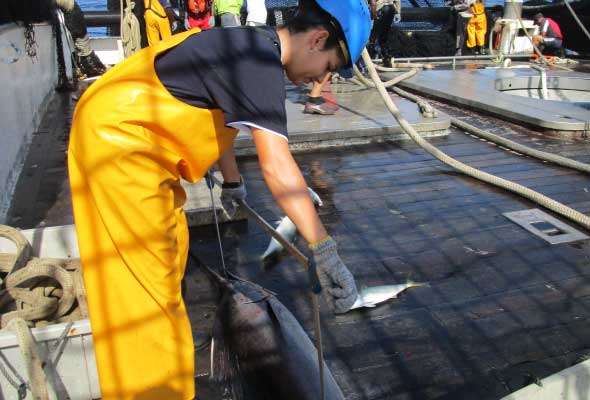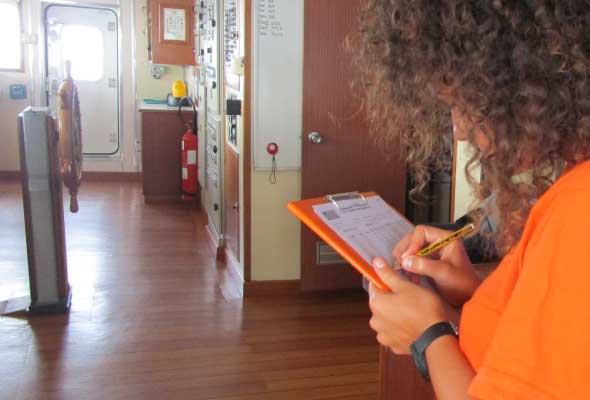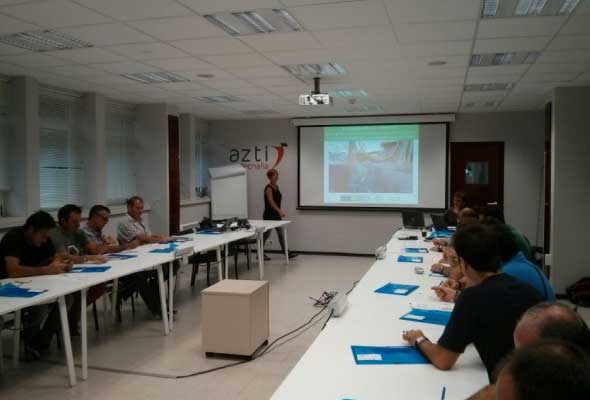GOOD PRACTICES FOR
RESPONSIBLE
FISHING
APR certified vessels comply with different requirements about good practices such as the existence of a control system, the use of non-entangling FADs, the provision of release practices of associated species, etc.
CONTROL SYSTEM
On board and on land
On board
Through observants (human or electronic) that verify the compliance of good practice requirements.
On land
Observant coverage must be of a 100% in the Atlantic, Indian, and Pacific oceans.


NON-ENTANGLING FADS
Reduction of unwanted catches
The new FADs that are put into service are designed and built with materials that prevent or reduce the gillnetting of associated species.
RELEASE PRACTICES OF ASSOCIATED SPECIES
On board and on land
Release practices must maximize the survival of aquatic animals caught incidentally or through FADs, while ensuring the safety of the crew.
The release practices of associated species are applicable, at least, to sharks, whale or pinto sharks, sea turtles, manta rays, and skates. These practices depend on the species and the following can be mentioned: hand net; bed, sailcloth, sarria or net; specific equipment (Hopper or tray with ramp, hatches on deck or others); sinking the line of corks; manually.


REGISTRATION OF INFORMATION
FADs and Release practices
FADs
Name of the vessel; name of the observer aboard; tide start date; tide code; operations with the FADs; date and time; position in degrees and minutes; grid features; rabo features; other elements (plastic bottles, corks, sacks, palm trees, rods, coloured ribbons).
Release practices
Cast; date; tide; estrobado start time; detection and release time; characteristics of the individuals (species, size and sex); manner of release; state of the animal at the moment of release (eyes, head, fins, skin, gills or shell). In the event that the release of an animal is non-compliant, the reason for the disapproval must be registered (lack of material, unavoidable residual mortality, unfulfilment).
TRAINING
Awareness about the impact
The skipper and captain of APR certified vessels are conscious about the potential impacts that the fishing activity can have on the marine ecosystem, and they receive regular training. This training deals with the state of fishing resources and with the best fishing practices. The observers are accredited by an independent scientific Organization, a public Entity of the flag state or a Regional Fisheries Management Organization (RFMO).

